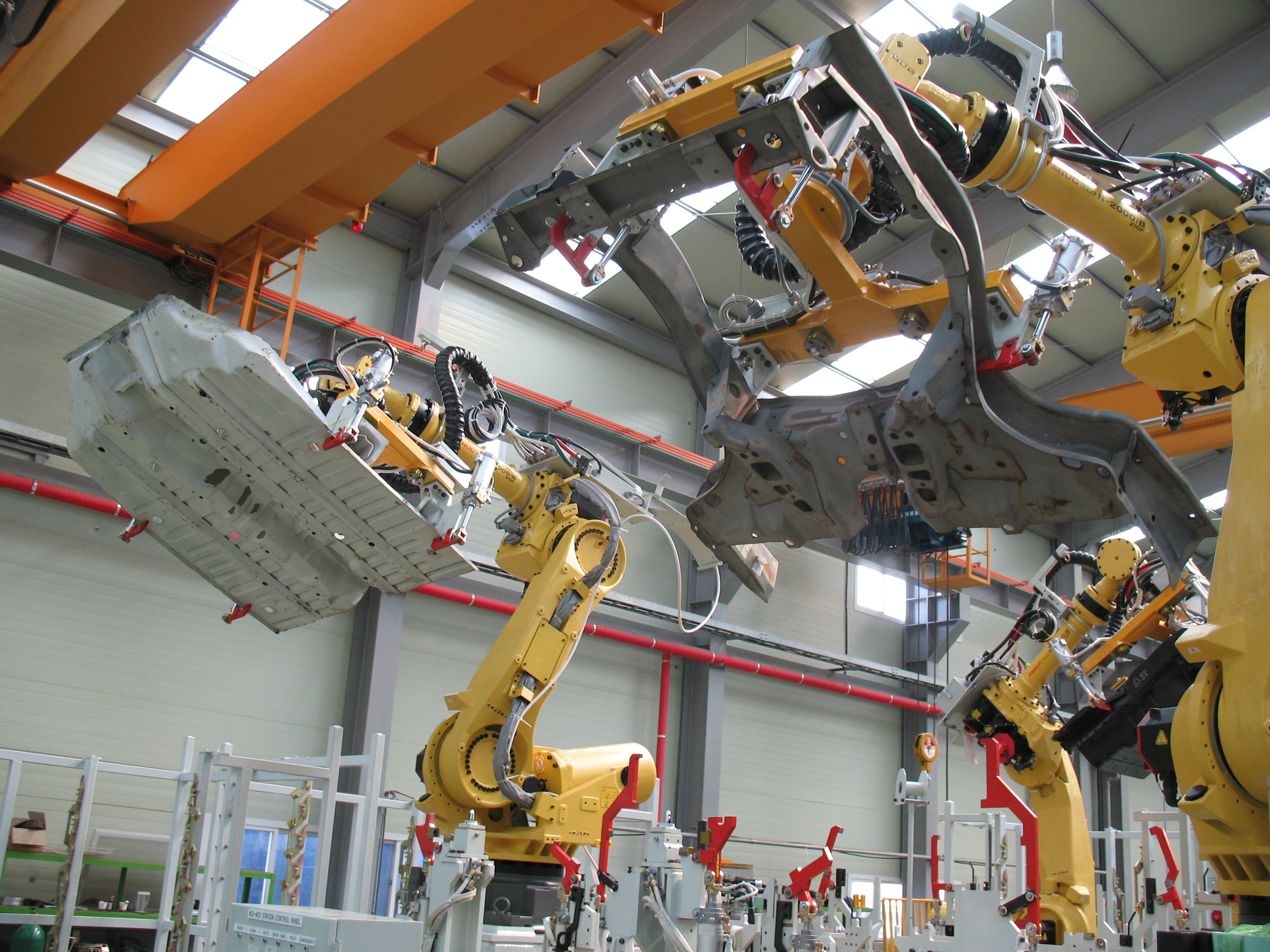
Partner Article
The future of manufacturing is already happening
A revolution is taking place across factory floors everywhere as the manufacturing industry, much like many others, undergoes a digital transformation.
The adoption of Industry 4.0, a term that describes the increased use of web-connected industrial processes, software, robotics and advanced automation for greater productivity, quality and efficiency, is set to deliver significant rewards for manufacturers. Indeed, according to a government-commissioned review exploring how Britain can benefit from the rapid technological changes, the country’s manufacturing sector could enjoy up to £455 billion in additional revenue, and a net gain of 175,000 highly skilled, well paid jobs if it is able to unlock the value associated with Industry 4.0 over the next ten years.
In contrast, however, the findings of a survey we commissioned recently reveal that a high proportion of senior decision-makers across a range of businesses don’t recognise the benefits of automation and digital technology, or acknowledge the role that digitalisation plays in manufacturing. Despite the opportunities that the evolution in technology and processes represent, the survey found that only one in ten saw any association between manufacturing and Industry 4.0, with one in five suggesting that the sector is currently unprepared for its requirements and its impact.
Challenging outdated perceptions It’s encouraging that manufacturing businesses appear to be embracing the benefits of automation and digital technologies. As they look to meet customer demand for high-quality fast-turnaround products and prototypes, cutting-edge techniques such as metal 3D printing, CNC machining, and rapid injection moulding enable manufacturers to produce components in as little as a single day from an original CAD design being submitted.
Despite this, manufacturing is finding it hard to shake off outdated memories of its industrial past. According to our survey, around a quarter of senior business decision-makers in the UK still associate the industry with legacy terms such as “manual labour” and “assembly lines”, with many believing it to be neither “digital savvy” nor “high tech”.
What’s more, although we continue to see a growing number of headlines espousing automation and robotics as the future of the industry, and arguing the pros and cons of this, around a quarter of businesses said they expected to see little or no increase in the use of automation in their own manufacturing services during the next five years. Worryingly, such short-sightedness has the potential to restrict the ability of UK businesses to compete in a crowded global market as, by overlooking automation, many will miss out on the cost and time savings it offers.
Many businesses believe a future for the industry could lie in greater investment, however. Almost half of the respondents to our survey suggested that investing more in R&D would help the UK retain its position in the global manufacturing market, for example, while a third said that focusing more on attracting graduates in STEM subjects would help to develop fresh talent and bolster the industry’s growth.
Ensuring a competitive future Industry 4.0 is no futuristic pipe-dream; it’s happening now and the growth of digitalisation and automation are transforming the manufacturing sector. According to our survey, though, there is currently a limited understanding of just what Industry 4.0 is and what it means for the future of manufacturing.
We should be concerned that, rather than being seen as an increasingly high-tech, digitally-powered industry capable of powering forward many UK businesses, not to mention the wider economy, manufacturing continues to be perceived as being mostly manual work, made up of labour-intensive processes.
In truth, the UK’s manufacturing industry is powered by innovation, and driven by some of the country’s most skilled engineers. Advanced automation and digital technologies are employed to ensure production-ready parts can be delivered at volumes, speeds, and at levels of quality never before possible.
We simply can’t afford to bury our heads in the sand when it comes to the rise of these technologies, particularly given the transformative effect they’re already having on the industry, and the significant opportunities for time- and cost-savings they represent. By embracing Industry 4.0 and all it entails, we should instead recognise the crucial role that digitalisation plays in ensuring the competitive future of the UK manufacturing industry. And it’s not too late to start. The future of manufacturing is happening now.
Stephen Dyson, head of Industry 4.0, Protolabs
This was posted in Bdaily's Members' News section by Protolabs .








 Restoring confidence for the economic road ahead
Restoring confidence for the economic road ahead
 Ready to scale? Buy-and-build offers opportunity
Ready to scale? Buy-and-build offers opportunity
 When will our regional economy grow?
When will our regional economy grow?
 Creating a thriving North East construction sector
Creating a thriving North East construction sector
 Why investors are still backing the North East
Why investors are still backing the North East
 Time to stop risking Britain’s family businesses
Time to stop risking Britain’s family businesses
 A year of growth, collaboration and impact
A year of growth, collaboration and impact
 2000 reasons for North East business positivity
2000 reasons for North East business positivity
 How to make your growth strategy deliver in 2026
How to make your growth strategy deliver in 2026
 Powering a new wave of regional screen indies
Powering a new wave of regional screen indies
 A new year and a new outlook for property scene
A new year and a new outlook for property scene
 Zero per cent - but maximum brand exposure
Zero per cent - but maximum brand exposure